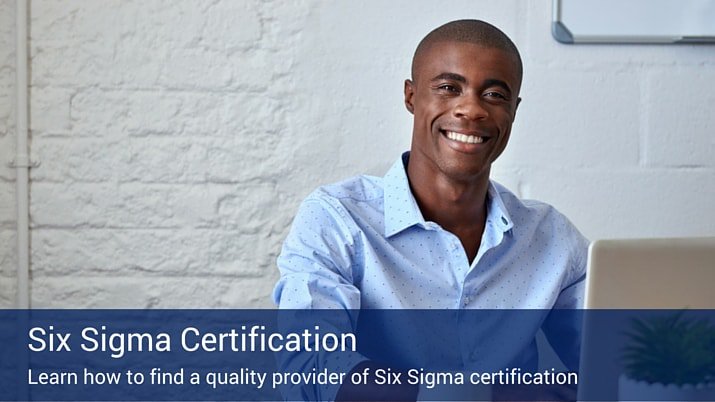Are All Six Sigma Certifications Equal?

Last Updated June 16, 2016
The Six Sigma process has grown to become a world-wide phenomenon. However, unlike the Project Management Institute (PMI), there is no official authorizing agency providing a standardized Body of Knowledge (BOK) for the industry of Six Sigma practitioners. Consequently, it is important to research and find a reputable provider of Six Sigma training and certification.
Six Sigma Associations
One such organization is the American Society for Quality (ASQ). The ASQ is recognized as a certifying body for the credentials of Certified Quality Manager (CQM), Certified Quality Engineer (CQE) and Certified Quality Auditor (CQA). In 2000, ASQ began certifying for Six Sigma. This includes Yellow Belt Certification, Green Belt Certification, Black Belt Certification and Master Black Belt Certification. Although the ASQ offers Six Sigma certification, at this time they cannot be considered an “official authorizing agency,” as that designation has yet to be granted to any provider.
The International Association for Six Sigma Certification (IASSC) is working to change that. The stance of the IASSC is that the steady rise in demand for Lean Six Sigma-trained practitioners has led to a plethora of unqualified providers, offering many opportunities to take Six Sigma training for certification. However, there is still no centralized certification body to assure quality.
The IASSC said the purpose of industry certification is to identify individuals who are qualified to perform the activities their profession is certifying them for. The IASSC indicated that in order to grant certification in Six Sigma, and have the credential represent quality, a universally-accepted body of knowledge and standardized testing needs to be adopted.
Six Sigma Through Villanova University
Villanova University is also recognized as a quality provider of Six Sigma training and certification.
Villanova’s approach to instruction includes the use of streaming video and live lectures with active Six Sigma practitioners. Six Sigma professionals have the opportunity to interact with expert faculty through hosted message boards, chat rooms, email and two-way voice over IP technology. In addition, students have the benefit of real-world instruction because Villanova’s in-depth program and certification process is facilitated by existing Six Sigma practitioners.
Today, there are a wealth of options available for receiving Six Sigma training and certification. When choosing a program, it is important to look at industry expectations for a given profession, and to do the research to find a recognized quality provider of certification options.





